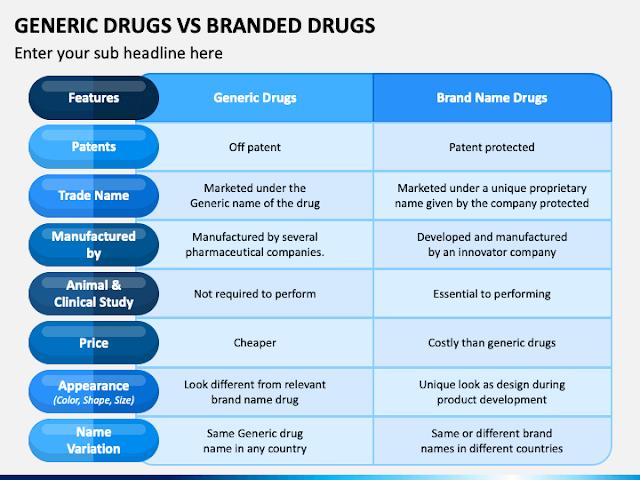Introduction
The availability of both generic and brand medicines in the pharmaceutical market provides consumers with a wider range of options when it comes to managing their health. However, there is often confusion regarding the efficacy and effectiveness of these different types of medications. This article aims to delve into the topic and provide a comprehensive understanding of the similarities, differences, and considerations between generic and brand medicines.
Understanding Generics and Brands
Generic medicines are comparable copies of brand-name drugs that become available once the patent for the original medication expires. These drugs are required to meet stringent regulatory standards set by medical authorities to ensure their safety, quality, and effectiveness. On the other hand, brand medicines are developed by pharmaceutical companies who hold the exclusive rights to manufacture and market the drug for a limited period of time after its discovery.
Efficacy of Generic Medicines
The efficacy of a medicine refers to its ability to produce the desired therapeutic effect. In the case of generic medications, they are required to demonstrate bioequivalence to the brand-name drug, meaning their active ingredients are absorbed by the body at the same rate and to the same extent. This means that generic drugs should have the same efficacy as their brand-name counterparts.
Regulatory Oversight and Safety
Generic medicines must undergo rigorous testing and review processes by regulatory agencies before they can be approved for use. These agencies ensure that generics are as safe and effective as brand-name drugs through comprehensive analysis of their composition, manufacturing, and quality control. Consequently, patients can have confidence in the safety and efficacy of generic medicines.
Effectiveness of Generic Medicines
Effectiveness refers to a drug's ability to produce the desired therapeutic effect in real-world scenarios. Since generic and brand-name medicines contain the same active ingredients, they are expected to have similar effectiveness when used appropriately. However, minor differences in formulation or inactive ingredients can impact how the drug is absorbed, which may result in variations in effectiveness for a small number of individuals. These variances, known as bioequivalence limitations, are closely monitored during the generic drug approval process.
Considerations for Brand Medicines
Brand-name drugs, characterized by their distinctive packaging and often higher price, have a significant investment in research, development, and marketing. However, it is important to note that their higher cost is primarily driven by the expenses incurred during the discovery and initial market entry. After the patent expiration and the introduction of generic alternatives, brand-name medications lose their exclusivity and face competition from lower-cost generics.
Patient Perception and Confidence
Patients may have varying perspectives and confidence levels when it comes to choosing between generic and brand medicines. Familiarity with brand names, marketing efforts, and prior positive experiences can often influence patient perceptions. However, it is essential to emphasize that generic drugs are rigorously tested for safety, quality, and efficacy, offering a cost-effective alternative without compromising therapeutic outcomes.
Conclusion
The availability of both generic and brand medicines presents patients with valuable options for managing their health conditions. Generic medicines, which undergo strict regulatory scrutiny, offer comparable efficacy and effectiveness to their brand-name counterparts. Patients can confidently choose generic medications, knowing they are safe, quality-assured, and can deliver the intended therapeutic effects. By understanding the similarities and differences between generic and brand medicines, patients can make informed decisions in consultation with their healthcare providers for optimal treatment outcomes.



Post a Comment
Full Name :
Adress:
Contact :
Comment: